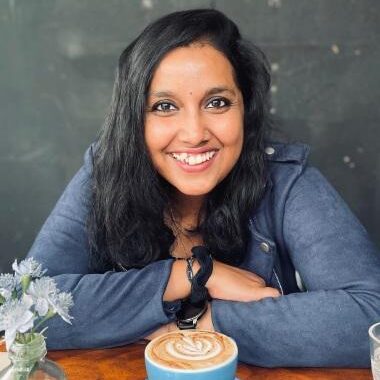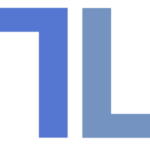Start of a New Journey

Sruthi Sekar shares her academic and professional journey, leading up to her appointment as a core faculty member at Trust Lab.
Prior to joining Trust Lab at the Computer Science and Engineering Department, IIT Bombay in April 2024, Sruthi Sekar was a post-doctoral researcher at UC Berkeley, hosted by Sanjam Garg. She did her doctoral research at Indian Institute of Science under the supervision of Bhavana Kanukurthi and Manjunath Krishnapur. Her research interest lies in Cryptography and other related areas in Theoretical Computer Science.
Could you tell us about your academic journey and what motivated you to pursue a Ph.D. in Mathematics?
My journey into exploring research in Mathematics began during my undergraduate days at Lady Shri Ram College. Engaging in various small academic projects across different math areas, I realized my desire to pursue a Master’s at a research institute, with IISc becoming my dream destination. A visit to the IISc campus further fueled my passion, motivating me to excel in the subsequent interview. In 2014, I joined IISc for an Integrated Ph.D. program in Mathematics. During my Master’s, I deliberately diversified my course selection, including subjects from not only the Math department but also the Computer Science and ECE Departments. Among the courses, Cryptography, Complexity theory, Information theory, Algebraic Number Theory, and Abstract Algebra captivated my interest. In the summer of 2015, I conducted research in Number Theory at the Institute of Mathematical Sciences. Simultaneously, I undertook an online Cryptography course by Prof. Dan Boneh from Stanford through Coursera. This transformative summer solidified my focus on Cryptography as the research area that seamlessly blended all my diverse interests.
What was the focus of your Ph.D. research, and could you explain it in a way that a non-specialist could understand?
Cryptography involves designing software solutions (algorithms) to safeguard against various adversarial threats to your system. In my Ph.D. research, I concentrated on developing robust schemes to counter information theoretic adversaries—adversaries with unlimited computational power. Specifically, my focus was on creating specialized codes to enhance the security of cryptographic systems against “side-channel attacks.”
To illustrate this concept, consider using an encryption mechanism to conceal a message. This requires a secret random key. The challenge is to securely store this key, ensuring it remains unaltered by adversaries to guarantee that the encryption effectively conceals the message. Traditional cryptographic algorithms primarily address security against standard adversaries attempting to compromise the encrypted message while assuming the inviolability of the secret random key. However, side-channel attacks, as the name implies, deal with security in situations where adversaries possess the capability to modify or glean additional information about the key. They exploit this advantage to uncover the hidden message. For instance, an adversary might exploit the fluctuations in power consumption or execution time during the encryption process to gain insights into the secret key, thereby compromising the security of the cryptographic system.
My Ph.D. research entailed building algorithms that protect such secret keys against side channel attacks, while ensuring that the solution does not impact the efficiency of the underlying cryptographic scheme, like the encryption in the above example.
You’ve received several prestigious awards and recognitions during your academic career. Can you share a bit about the most meaningful or memorable ones and what they meant to you?
I have been fortunate enough to have received a few recognitions at various stages of my research journey. These recognitions played a crucial role in boosting my self-confidence and sustaining my motivation during the challenging phases of my research. Among these acknowledgments, the one that stands out as the most meaningful, and frankly, something I hadn’t anticipated, was the Honorable Mention at the ACM India Doctoral Dissertation Award.
The journey leading up to this recognition was marked by dedication and perseverance. Over five years, my coauthors and I tirelessly tackled a particular problem, encountering partial results along the way. The path to the final main result of my thesis was long and occasionally frustrating. The award, however, felt like more than a personal accolade—it was a validation of the collective hard work of our team. It made me realize that I can continue to take on challenging research problems in the future and work towards solving them, armed with the confidence that our efforts can make a meaningful impact.
Given your own achievements, how would you inspire the next generation to excel in their chosen fields?
I would encourage aspiring students to choose ambitious goals, work collaboratively, and persist through the inevitable obstacles. Each achievement, big or small, contributes to personal growth and the advancement of knowledge. It’s crucial to have confidence in one’s abilities, view challenges as opportunities for growth, and maintain a passionate commitment to making a lasting impact in their chosen fields.
A valuable lesson I acquired from my Ph.D. advisor, Prof. Bhavana Kanukurthi, is the significance of finding a balance between research and personal life. This lesson has taught me to manage multiple research projects simultaneously, understanding that not all may yield the desired outcomes. Mastering the skill of maintaining this overall equilibrium is, in my view, essential for sustained excellence.
Could you describe your current role as a postdoctoral researcher at UC Berkeley and the work you’re involved in there?
During my postdoctoral research tenure at UC Berkeley, I delved into projects with intriguing real-world applications. These applications included verifying the validity of transactions on a blockchain, providing evidence for machine learning inferences, and tackling the issue of disinformation. At the heart of these applications lies a powerful cryptographic tool known as zero-knowledge proofs.
Zero-knowledge proofs enable a prover, such as a user uploading a transaction on a blockchain, to convincingly demonstrate the validity of a statement (e.g., the uploaded transaction is valid) to any verifier. Importantly, this is achieved without revealing sensitive details about the statement (e.g., transaction specifics and user identity) to the verifier. This cryptographic technique ensures that the validity can be verified while maintaining privacy.
I had the privilege of contributing to projects aimed at constructing such proofs, focusing on optimizing their efficiency for practical applications. Notably, one of the proof systems I worked on, named “zkSaaS: zero-knowledge SNARKs as a Service,” is currently in the process of being adopted by Webb, a company utilizing blockchain applications. This system holds the potential to enhance the security and privacy of various applications, including those mentioned earlier.
What factors influenced your decision to join Trust Lab at IIT Bombay, and what excites you most about being part of this research community?
Several aspects attracted me to the Trust Lab at IIT Bombay. Firstly, the dynamic environment characterized by a cohort of researchers delving into interconnected areas of research, each concentrating on diverse facets of security and privacy, captivated me. This collaborative space promises exciting opportunities for collaboration on various projects, and I am eagerly anticipating engaging in such endeavours.
Secondly, the outreach initiatives undertaken by Trust Lab resonate deeply with me. The commitment to making education accessible to students across India and providing them with opportunities to engage in research at IIT Bombay is a cause I am passionate about. The lab’s focus on inclusivity and broadening educational horizons aligns with my values, and I am enthusiastic about contributing to such a meaningful initiative.
Finally, the accessibility of resources and the presence of top-notch talent in India within Trust Lab are pivotal factors that contribute to a thriving research environment. The availability of these resources, coupled with the opportunity to collaborate with some of the brightest minds in the country, positions Trust Lab as an ideal setting for research excellence. This combination of factors makes my decision to be a part of Trust Lab at IIT Bombay particularly exciting and promising.
Trust Lab is focused on creating a more trustworthy digital environment. From your perspective, what are some of the key challenges in this area, and how do you envision addressing them?
Constructing systems to ensure trust in the digital realm poses a formidable challenge. Amidst various application-specific hurdles, a particularly daunting task is navigating the delicate balance between orthogonal needs inherent in different applications. For instance, in the realm of Central Bank Digital Currencies (CBDC), the challenge lies in reconciling the conflicting demands of privacy and regulatory compliance. Similarly, domains like multi-party computation and machine learning present intricate challenges where the equilibrium between privacy and fairness is precarious. Tackling the intricacies involved in striking a balance between seemingly opposing needs involves not only delving into the technical aspects but also considering the broader socio-economic and regulatory landscapes that shape the requirements of digital trust systems.
Moreover, another formidable challenge surfaces in bridging the divide between theoretical solutions and their practical implementation. While theoretical frameworks often provide elegant and abstract solutions to complex problems, translating these into functional and effective practical applications is a demanding undertaking. This theory versus practice gap requires careful consideration, innovative approaches, and interdisciplinary collaboration to ensure that theoretical advancements seamlessly translate into practical solutions that can address real-world complexities and challenges. Closing this gap is crucial for the successful deployment of robust systems that can genuinely uphold trust in the evolving digital landscape. This requires an iterative and adaptive approach, where feedback from practical implementations informs and refines theoretical models.
On a personal note, can you tell us about some of your hobbies or interests outside of your academic and research pursuits?
I have several hobbies outside of research, including singing, playing guitar/keyboard, travelling and making travel vlogs, video editing and music mixing, swimming, photography, and adventure sports. I strongly believe in constantly learning something new. The process of learning gives me joy, whether it is a new research topic or a new instrument. I always hope that this list of hobbies grows and I continue to learn and enjoy new things in life.

